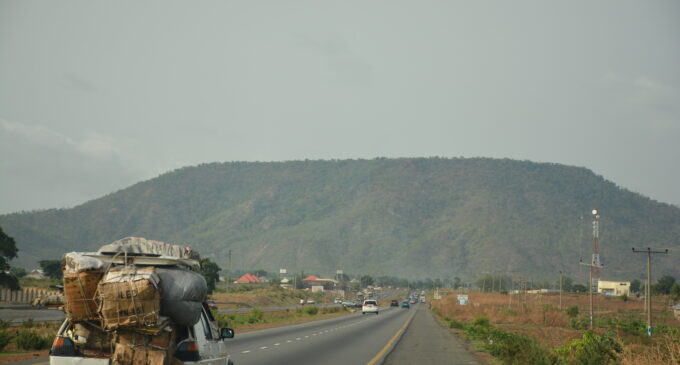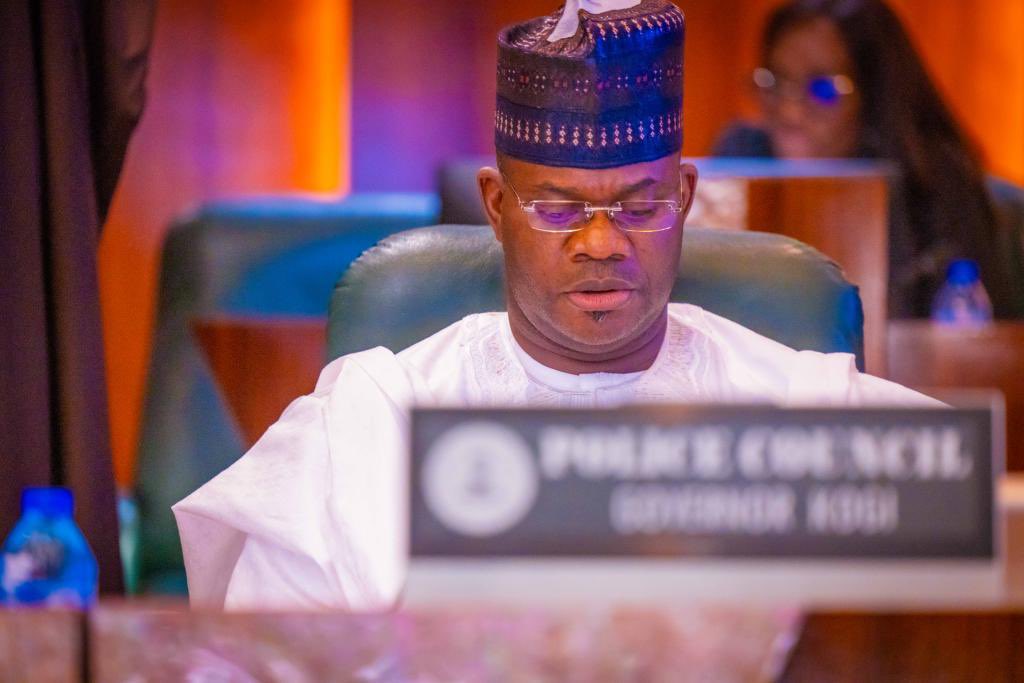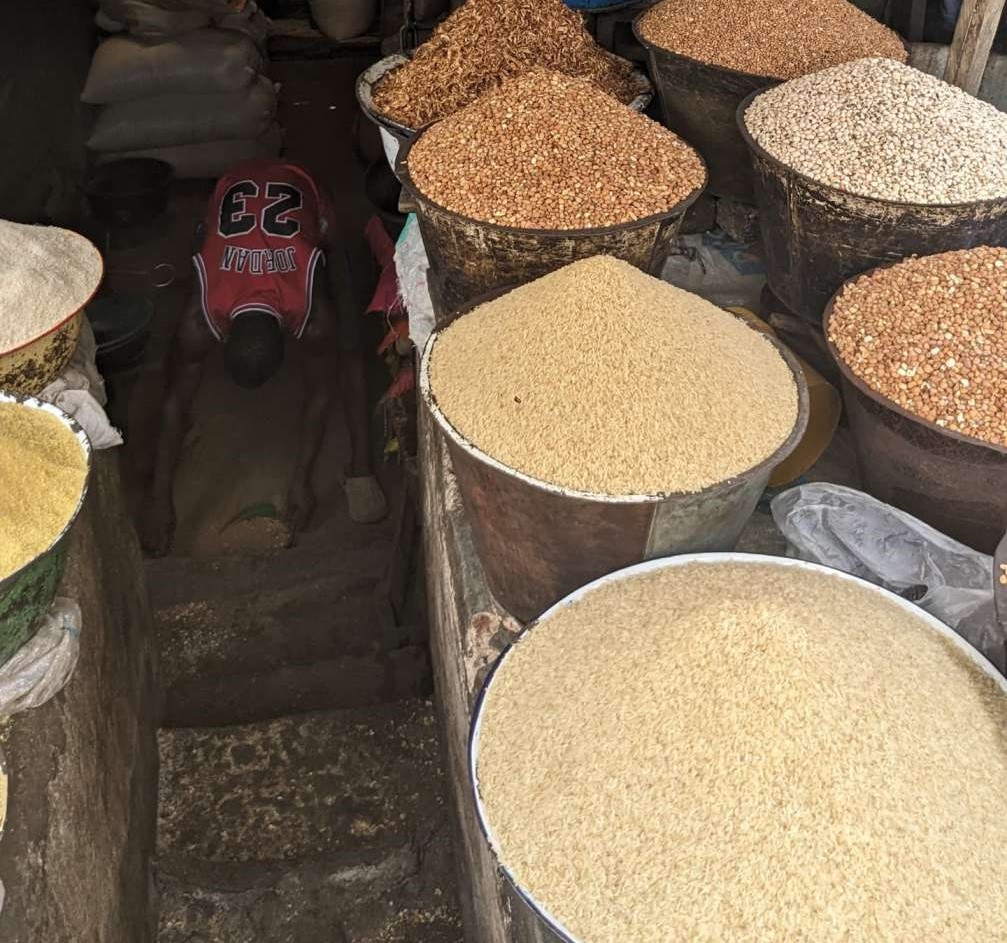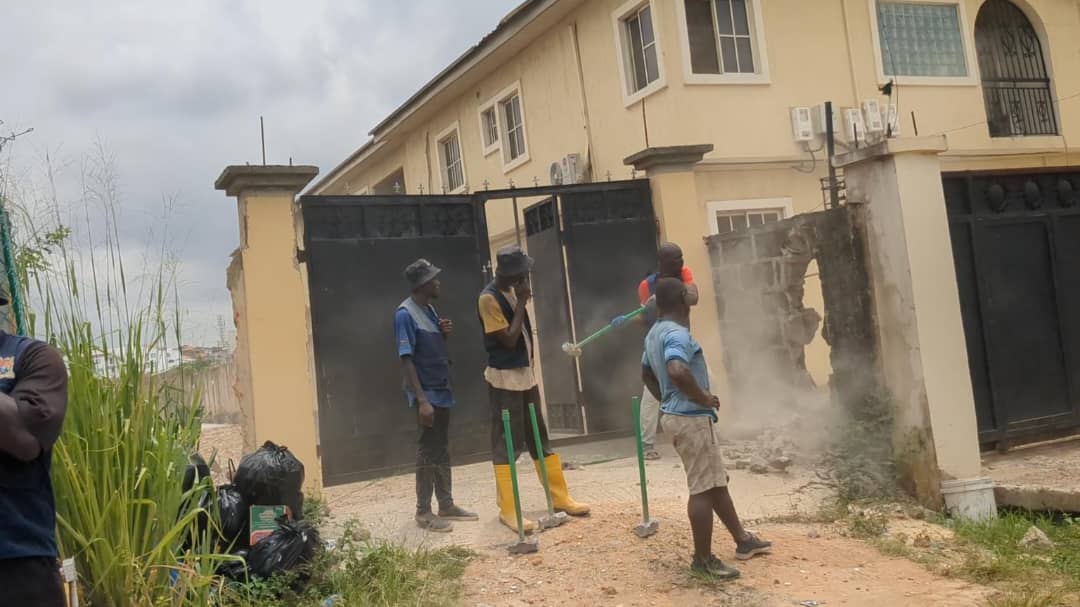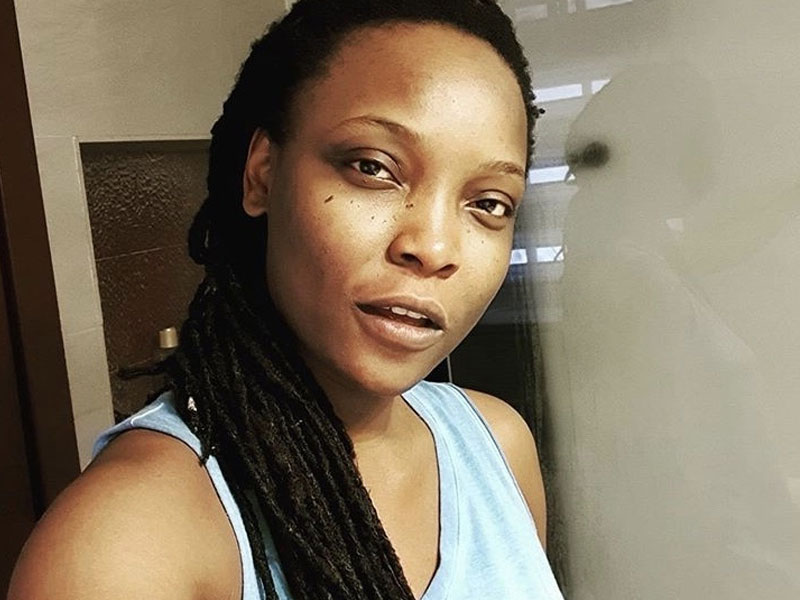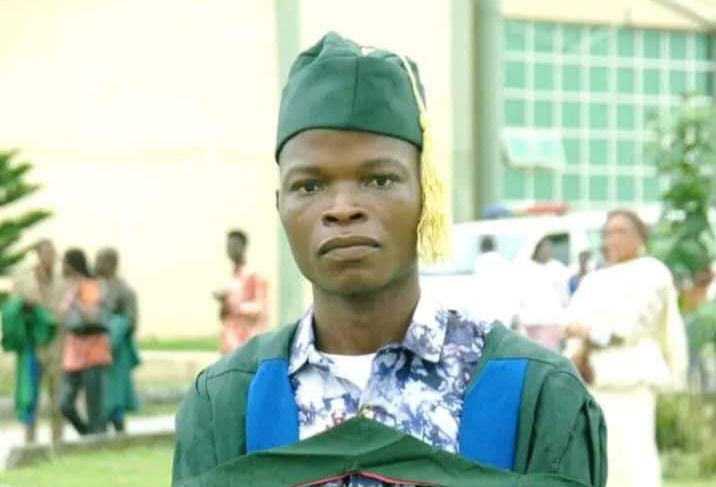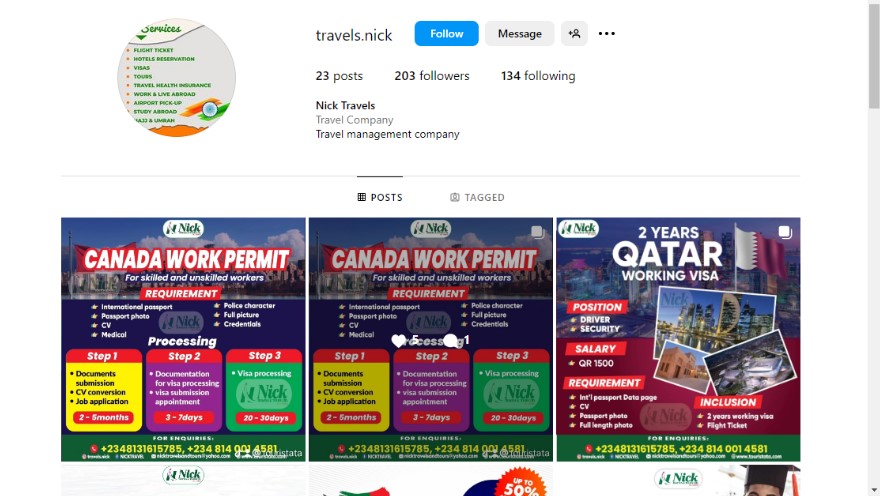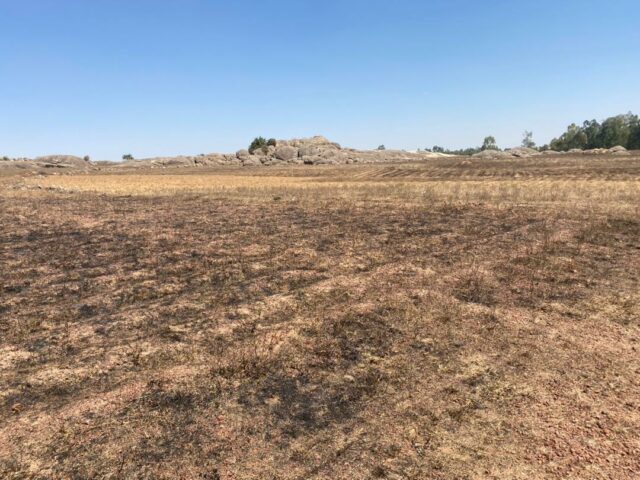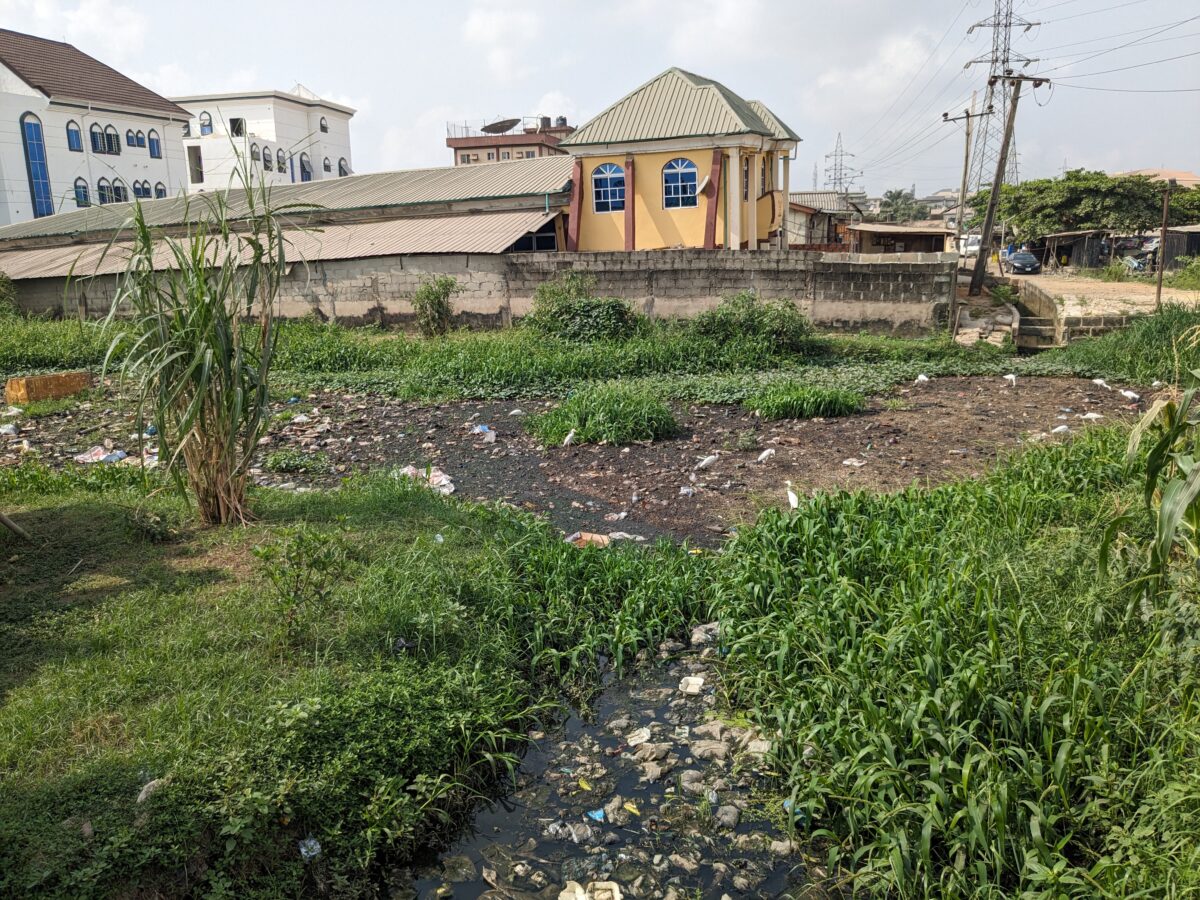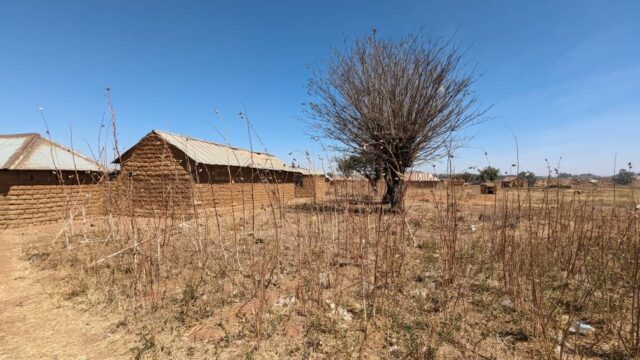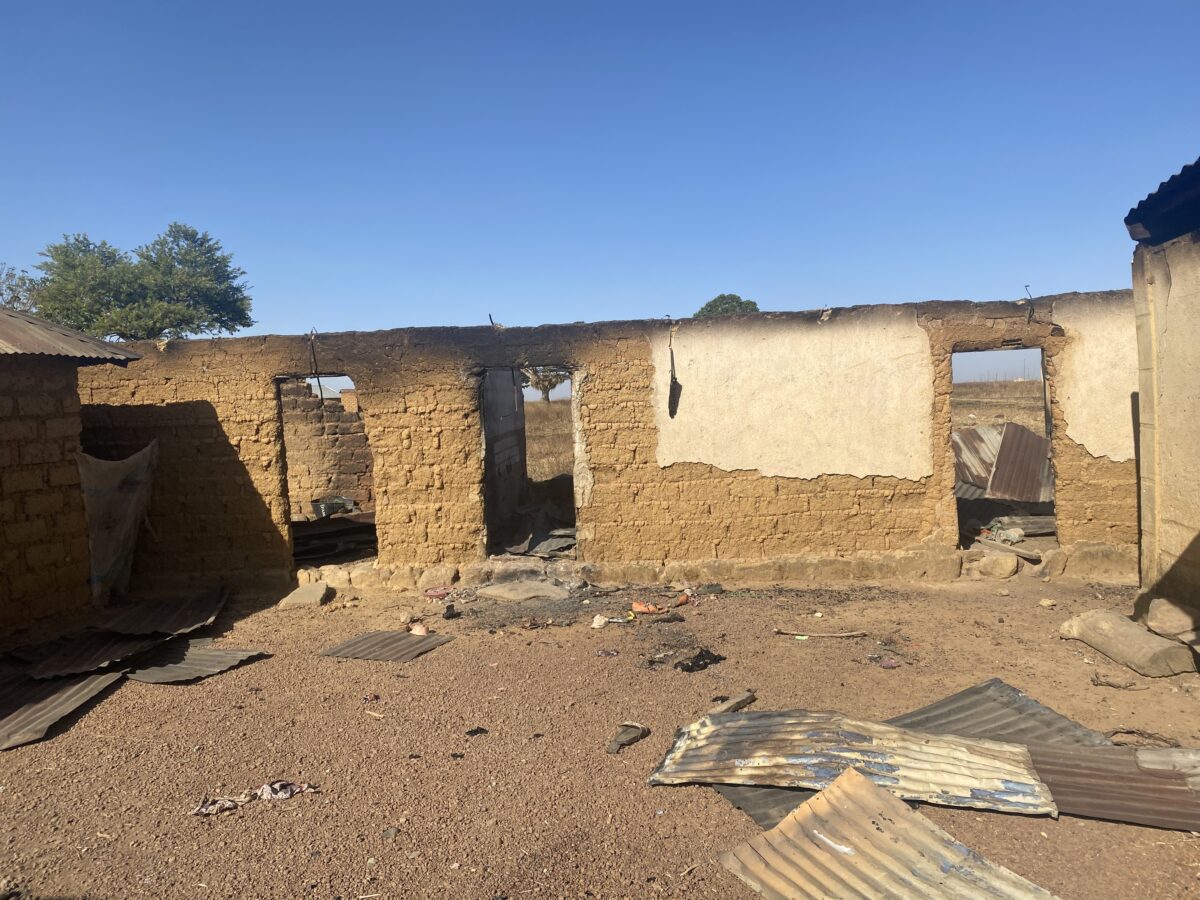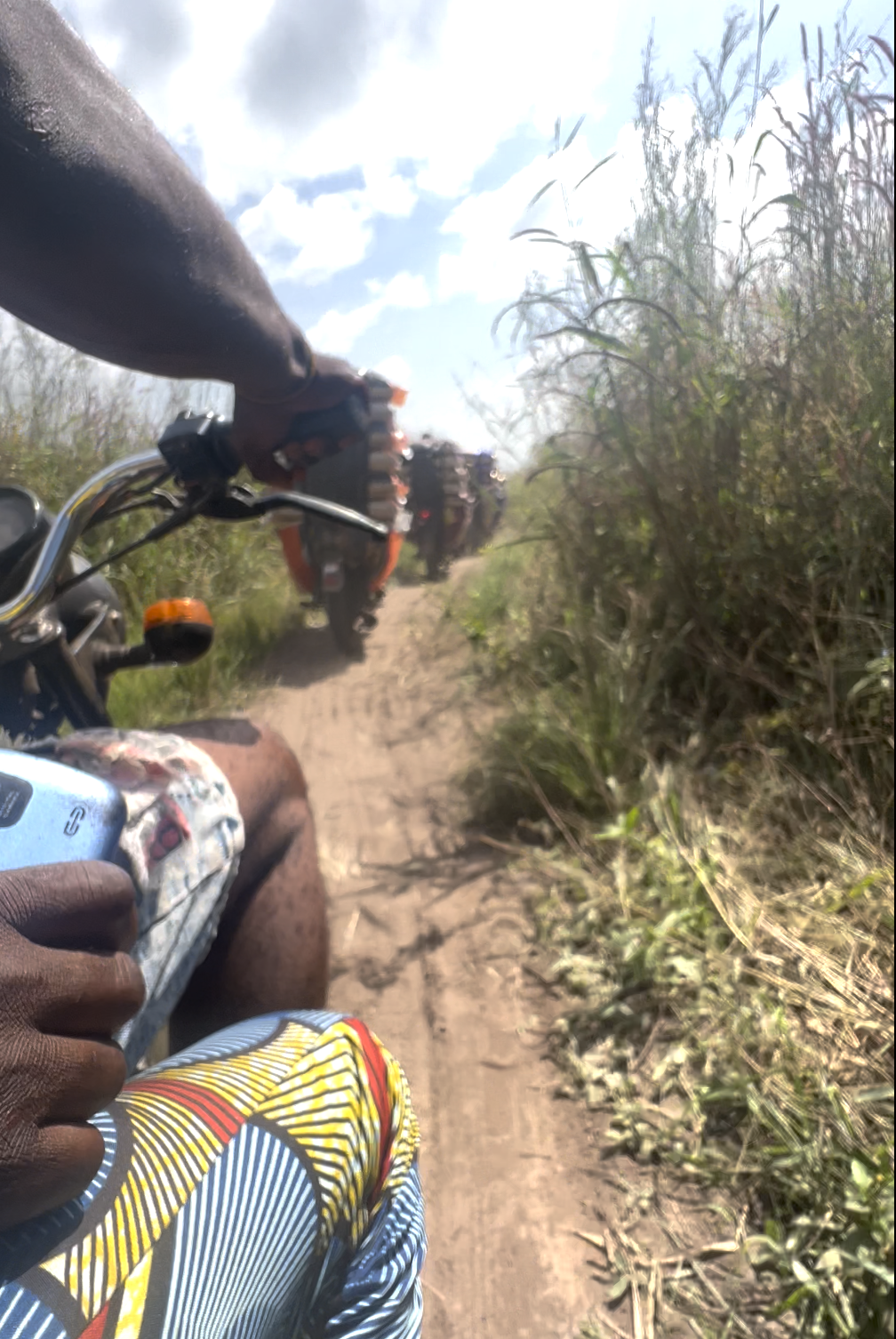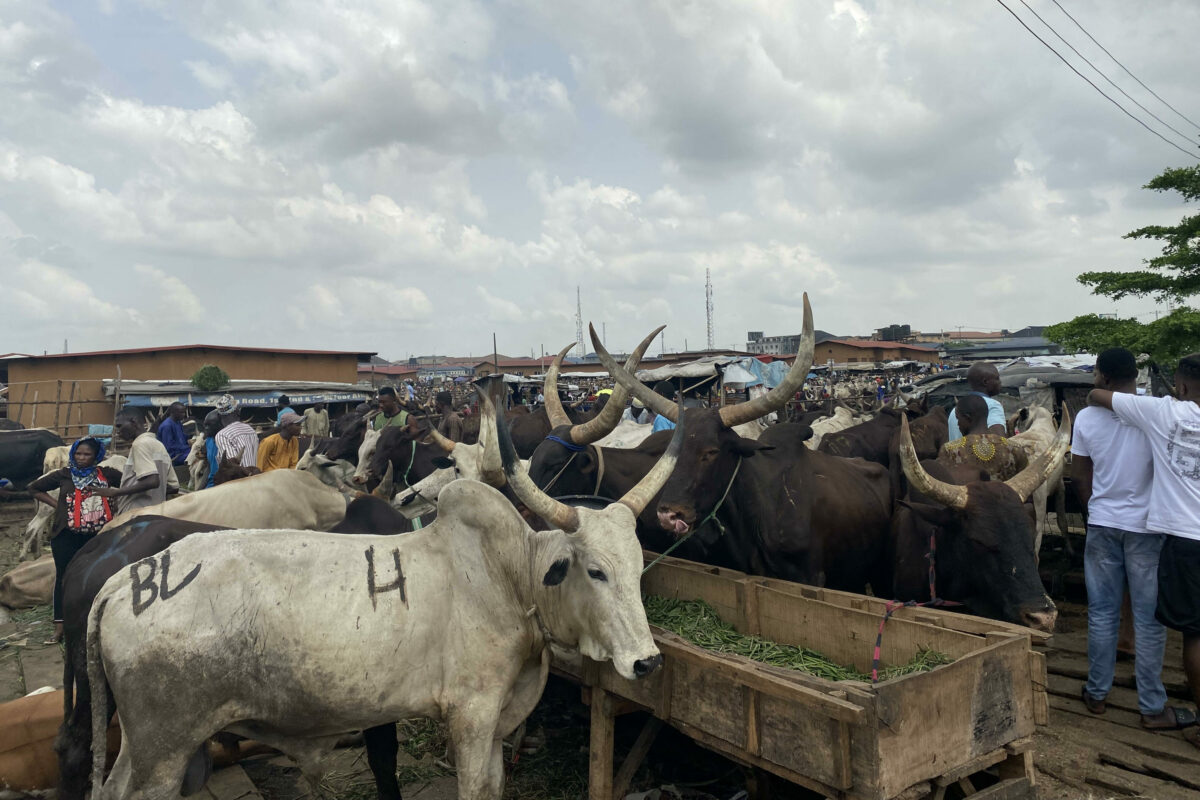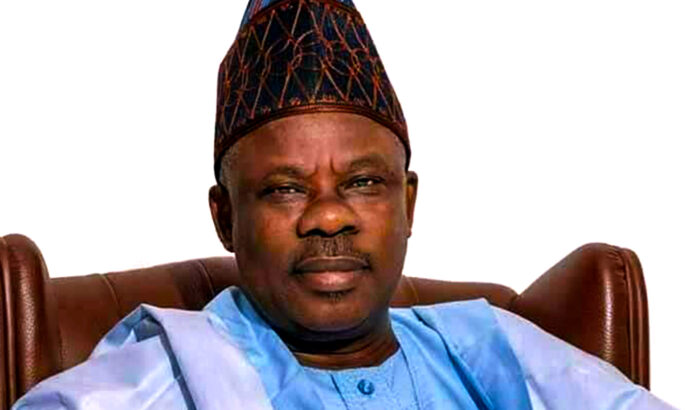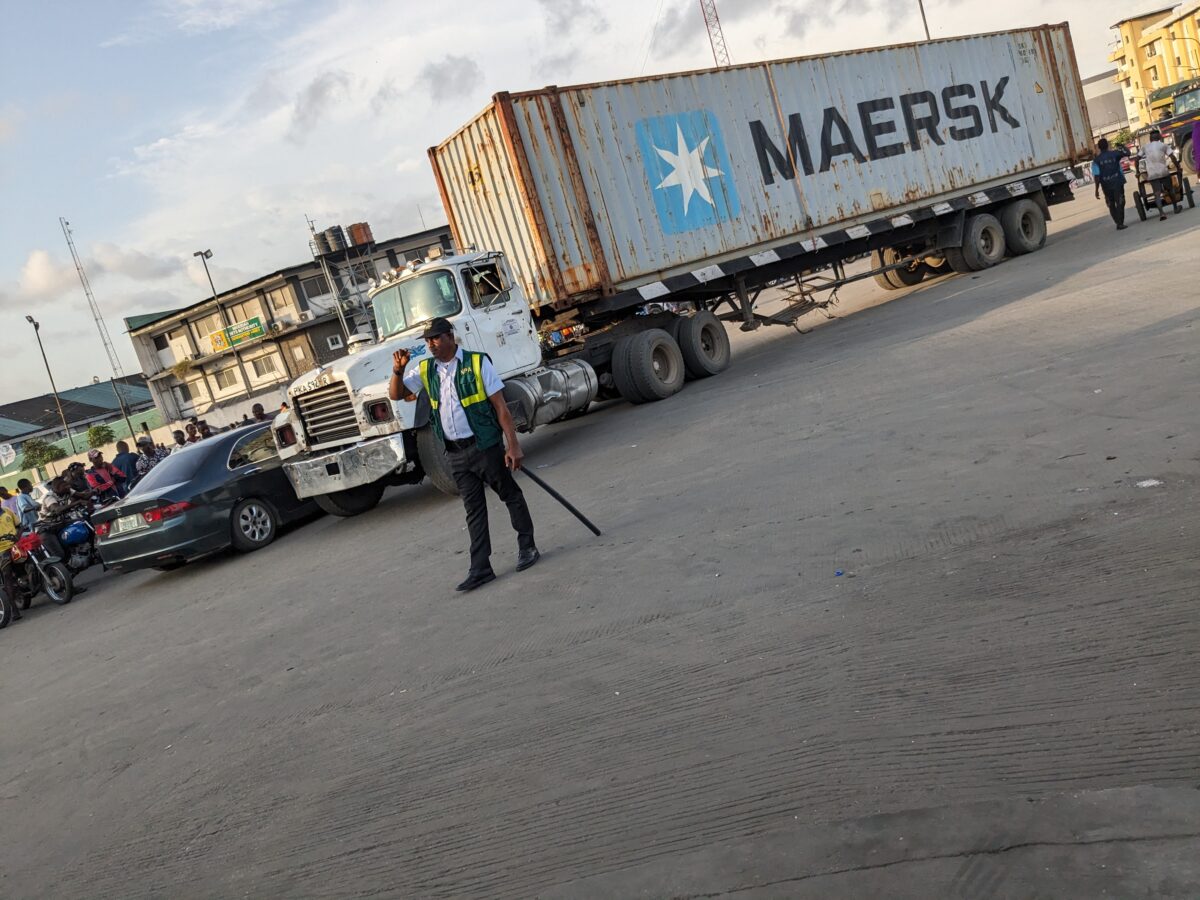Over two days in April, investigative journalist ‘FISAYO SOYOMBO drove the equivalent of a stolen vehicle from Abuja, Nigeria’s federal capital, to Lagos, the country’s commercial hub. Not only did he arrive Lagos safely with the car, he returned to Abuja scot-free with it — and this is despite passing through a whopping 86 checkpoints in a journey of over 1,600km that lasted a cumulative 28hours 17minutes. He recounts his experience in this article for TheCable.
As I drive out of First Avenue, Gwarimpa, Abuja, at 7:03am on Monday April 23 to exit the estate and commence what I knew would be my most tumultuous terrestrial journey ever, I ask myself one final time if this is something I truly want to do. The 59th-minute-of-the-eleventh-hour self-doubt was fueled not from within me but by the concerns of Taiwo George, editor of TheCable. He genuinely feared I was deliberately setting myself up for a few days behind the bars.
“This is really risky,” George had rightly observed on the eve of the trip. “You want to drive a vehicle with no single proof that you own it? If you were driving with expired particulars, it would be understandable; the penchant of interstate highway security for bribes is not in doubt. But to drive the equivalent of a stolen vehicle from Abuja all the way to Lagos? You may travel far but, ultimately, it’s just a matter of time before you’re apprehended; you may end up at the police station.”
Table 1: Abuja-Lagos Checkpoints
| S/N | SECURITY AGENT/AGENCY | LOCATION/DISTANCE FROM PREVIOUS LOCATION |
|---|---|---|
| 1 | Police | Gwagalada |
| 2 | FRSC | Kwali |
| 3 | Soldier | Abaji |
| 4 | FRSC | 15Km, just before Achabo |
| 5 | Military Checkpoint | Lokoja Bridge |
| 6 | FRSC | Zariagi |
| 7 | Police | Okene Junction |
| 8 | FRSC | 2Km |
| 9 | Customs | Okene |
| 10 | Police | Okene |
| 11 | Police | 1Km |
| 12 | Solider | 500m |
| 13 | Police | 500m |
| 14 | Customs | 500m |
| 15 | Soldier | 2Km |
| 16 | FRSC | 100Km |
| 17 | Police | 1Km |
| 18 | Customs | 5Km |
| 19 | Vacant Military Checkpoint | Ipeme/Ekpe-Ibillo- Isua-Oka Road Junction |
| 20 | FRSC Checkpoint | 7Km |
NIGERIA POLICE, THE UNDISPUTED KINGS OF BRIBERY
The porousness of Nigeria’s highway policing is well-documented. In August 2017, the National Bureau of Statistics (NBS) released a report confirming that policemen are the most corrupt public officials in the country, followed by judges and prosecutors. The damning report came the same day the United Nations Office for Drug and Crimes (UNODC) released its own corruption report that said Nigerians spend N400bn annually on bribes to public officials.
According to NBS’s 2017 National Corruption Survey, tagged ‘Corruption in Nigeria — Bribery as Experienced by the Population’, 46.4 percent of Nigerian citizens had had “bribery contact” with police officers. As reported by Daily Trust, that is almost half of the entire surveyed population. Judiciary workers (such as judges and prosecutors), the next guilty party, racked up a distant 33 percent. The report said 29.7 per cent of all bribes are paid to police officers upon a direct request before the service is provided.
“Police officers are the type of public officials to whom bribes are most commonly paid in Nigeria,” ICIR quoted the report as stating. “Of all adult Nigerians who had direct contact with police officers in the 12 months prior to the survey, almost half paid the officers at least one bribe, and in many cases, more than once since police officers are also among the three types of public officials to whom bribes are paid most frequently in Nigeria.”
Still, George — like many of us who are incredible believers in the Nigerian project — imagines the situation is not as terrible as the statistics suggest. Unfortunately, as we will find out in this piece, bribery among the police and other security agents is possibly worse than has been stated.
GOODBYE TO ABUJA

From Gwarimpa, the largest single housing estate in the country, I connect the Lugbe-Airport Road. After roughly 45minutes, at Giri Junction — the intersection of Abuja with the Abuja-Lokoja Expressway, en route to Gwagwalada — I run into the very first highway security. It’s the Police, two of their men standing akimbo either side of a parked patrol van, disinterested in the flow of traffic. Further forward, around Gwagwalada, is a second checkpoint. This time, it’s the Federal Road Safety Commission (FRSC). Like the policemen I left behind, they pick no interest in traffic flow as well.
At Kwali — one of the two area councils created from Gwagwalada Area Council in October 1996 by the Sani Abacha military administration — the FRSC officials are interested in traffic but only perfunctorily. One guess-look at me from afar and they let me go without flagging me down. At Abaji, still on Abuja-Lokoja Expressway, a soldier flags me down and, after exchange of pleasantries, waves me bye without asking for any document.
I travel 15km forward before I run into the next checkpoint, manned by FRSC officials, just before a location called Achabo. I am waved to pass. Up next is the military checkpoint by Niger Bridge, where a dark, sturdily-built, mean-looking soldier peers into wound-down car windows and relies on his instincts to decide whether to wave their drivers on or stop them. Next is Zariagi, in Adavi Local Government Area of Kogi State. Although the FRSC officials stop the two cars ahead of me, they wave me on. It’s close to three hours into the journey and I can’t believe my luck, I murmur to myself, not knowing I am only minutes away from being found out.
N1,000 — THAT’S THE WORTH OF YOUR CAR!

At Tape Junction, Okene, still in Kogi State, a slim, dark soldier flags me down. “Give me something make I drink water!” he screams animatedly.
“No worry, officer. Na when I dey come,” I reply him.
Visibly angry, he barks in quick succession: “Oya show me your particulars. Park! Park! Park there!”

I quickly stretch out a N1,000 note to him. Immediately, his anger thaws into smiles. “So you no wan make I drink water before?” he asks. “Oya go. You be correct man.”
For a moment, I’m lost in soliloquy. My feet caress the accelerator but I do not press it. Is this the value of a car in Nigeria, N1,000 (a little less than $3)? How on earth couldn’t the soldier have imagined that if I didn’t give him money at the first time of asking, and I suddenly gave him when asked to park, then something was definitely not right with my car documentation?
Two kilometres after Tape Junction is Checkpoint 9, manned by the FRSC. Next is the tenth checkpoint, at Okene, belonging to both the Nigeria Customs Service and the Police.
Over the next five kilometres, there are six checkpoints guarded by men of the Police, Army, Customs and FRSC. In fact, one checkpoint is jointly manned by the Police and Customs — and it is located just 500m after a military checkpoint. A further 5kn ahead is another checkpoint operated by Customs.
N5,000 FOR 11 DOCUMENTS

At the Ipeme/Okpe-Ibillo-Isua-Oka Road in Edo State, there is a military checkpoint, but it is vacant. Seven kilometers into that road, I run into an FRSC checkpoint. A middle-aged officer, whose badge reads ‘G. Alhassan’, flags me down.
“Can I see your driver’s licence and vehicle particulars?” he asks.
“Ha, officer, they are not here o,” I reply.
“Let me see your ID Card. Where do you work?”
“I work in Abuja.”
“Are you a banker?”
“I’m a journalist.”
“Which Newspaper?”
“ICIR.”
“Which of the newspapers?”
“ICIR.”
“But where is your ID Card now?”
“I just resigned from there on Friday…”
I had hoped, in error, that declaring myself not just a journalist, but an investigative journalist, would prompt Officer Alhassan to conduct himself professionally. But no. “Okay, okay,” he says. “Investigative Reporting.”
‘NO PROOF YOU OWN THE CAR’

He then makes a valid point: “Without your papers, how do we now know that you are the owner of the motor? The photocopies are not even here.”
“Match your break,” another officer interrupts. “I say match your break.”
Before, I do that, Officer Alhassan jumps to my defence. “Oh, is working; is working,” he says. “I know in this motor everything will be perfectly working.”
Table 2: Abuja-Lagos Checkpoints
| S/N | SECURITY AGENT/AGENCY | LOCATION/DISTANCE FROM PREVIOUS LOCATION |
|---|---|---|
| 21 | Soldier | 50m |
| 22 | Soldier | 1 Km |
| 23 | Military Checkpoint | Ipele–Kabba Road Junction |
| 24 | Police Checkpoint | 5Km |
| 25 | Police | 500m |
| 26 | Police | 10m |
| 27 | FRSC | Isuada |
| 28 | Customs | Ogbese |
| 29 | Police | 200m |
| 30 | FRSC | 3Km |
| 31 | FRSC | Ilara-Mokin |
| 32 | Military Checkpoint | Owode Owena |
| 33 | Police Checkpoint | 200m |
| 34 | Police | Erin-Oke |
| 35 | FRSC | 200m |
| 36 | Police | 500m |
| 37 | FRSC | Iwo Road |
| 38 | FRSC | Toll Gate |
| 39 | FRSC | Ogere |
| 40 | FRSC | Ogere |
After checking the car tyres, brake light, fire extinguisher and confirming that they are intact, Alhassan gives his verdict: “We are going to take your motor to the nearest police station and keep it there until…”
At this point, a female officer with the name tag ‘Nonye’ joins the conversation, urging Alhassan to ensure I’m booked.
“I’ll book you for N15,000,” Alhassan says. “Then transport to go and pay for you… that’s N17,000.”
As he retrieves the charge book and his pen, pretending to be bent on penalising me, I plead: “Don’t book me, please. Instead of booking me, I’ll cooperate with you so that we can resolve it.”
WARNED BY INTUITION, BLINDED BY GREED

Alhassan takes one long, searching look at me. Intuition tells him there is danger but he is blinded by greed.
“You know journalists are very, very trickish… I don’t trust you journalists… especially this department that you are, investigating reporting.”
Alhassan bursts into laughter, and tells me that if I really want to negotiate with him, I must first tuck my phone away in the car then come back to him. That done, he continues: “Okay. You say make we no go office? And if we go to the office it is to my own credit o, because it will amount to my enforcement upgrading. Ehen nah. Na feedback. We dey do feedback. Now, they ask you to rate yourself; if you tell lie, your commanding officer will know…”
“Don’t worry oga, let’s just resolve it.”
At that point, I give in and attempt a U-turn towards the gate to locate the nearest bank, Gambo stops me: “You’ll park here, withdraw the money outside then come back here to pick the car.”
This triggers another round of begging. Why lose so much time seeking out a bank on foot when we can simply drive to one? Surprisingly, he gives in. And as we approach the police station gate, he orders me to drop N200. It’s the norm, he says. Once a car enters the compound, it must pay a gate fee of N200 when exiting!
I withdraw N20,000 from the Ecobank ATM fairly adjacent the Idi-Ape police station, but I return with more than just cash. Gambo’s first-grade greed should not be allowed to pass without the police authorities and the public seeing his face, I reason. I hand him N15,000, deliberately, and turn on my video recording device.
Gambo flares up. No chance he’d take N15,000, he maintains, adding: “I’ve already called them [his colleagues]; it can’t work. Enter office; let’s go!”
I ask again to be sure: “So, you really want to collect N20,000 from me? Okay, no problem.”
POLICEMAN TEACHES HOW TO DECEIVE POLICEMEN

His lips part into a smile as I hand him the N20,000. Without my prompting, he tells me all the lies I must master to bypass other checkpoints.
“If any policeman stops you, tell him armed robbers attacked you and took the bag containing the documents because they thought money was inside,” he says.
Shocked that this could come from a policeman, I ask: “But won’t they ask me for evidence? Won’t they ask me to take them to the scene of the attack?”
“No, they won’t,” he assures me. “Even if they want to, would the armed robbers stay at the point where you were robbed? And you see, this our point is the most difficult one; there are 22 policemen in all. There is no place in this country where this checkpoint is not known. So, once you have passed this stage, it’s even possible that no one stops you again.”
For a moment, Gambo makes an effort to stop at the Stanbic IBTC before Iwo Road from Idi-Ape. Apparently, he wants to lodge the money in the account so his colleagues don’t know he made as much as N20,000. But I insist he leads me to Iwo Road, as I’m a stranger here and do not know my way around.
At Iwo Road, at the end of closing niceties, he tells me his mother hails from Ogun State, and his dad Edo. And his name? “Just put Gambo,” he says. “Everybody knows me.”
I request his phone digits but he says it’s a new number and he doesn’t know it offhand; he’d rather have mine and dial it. Big, fat lie!
It is now 34 days since we exchanged numbers but Gambo hasn’t called.
FROM ONDO TO EDO, AND KOGI

After losing approximately 45minutes to Gambo, I drive towards Ile-Ife, where the FRSC lie in wait at the toll gate. The police are a further kilometre ahead, and another batch 2km after. At Ikire (in Osun State), I pass both the Police and Customs, the FRSC at Akinola-Ipetumodo, Police 400metres after, Police at Erin-Ijesha, again at Erin-Oke and 1km after. A further kilometre ahead is the FRSC, followed by the Police 1km forward, the Police at Owena-Ijesha, Customs 2km after and a military checkpoint 200m ahead. At all these checkpoints, no one stops me.

I advance to Ilara-Mokin (in Ifedore LGA of Ondo State), where the Police have a checkpoint, as do the Police at Ogbese (in Akure North LGA of Ondo State), Police at Uso, Army at Owo, FRSC at Iwaro-Oka, FRSC at Isua Junction, Customs 3km after, Police 3km after and the FRSC 200m forwards. This is the point where I’m on the verge of crossing Ondo to Edo State. I have driven this ‘stolen’ vehicle past 25 checkpoints in all; 24 haven’t stopped me, while the only one that did, left me off the hook for N20,000.
On I cross to Ibillo, where I pass the Customs, to Lampese (in Akoko Edo LGA of Edo State) where I pass the Police, to Ogori-Magongo in Kogi State (better known simply as Magongo). A soldier is at a checkpoint 200m after Magongo and another after 3km. Further ahead by 1km is the Police, followed by FRSC at Okene.
NO PUSSYFOOTING: ‘WHAT DO YOU WANT US TO DO’?

Next stop, a policeman flags me down but doesn’t attend to me. Instead, he refers me to his partner — an ungracefully fair, irritable, belligerent middle-aged man. I quickly check his name tag. Michael Ramies, it reads. Location: Aku Village, after Okene but very close to Lokoja.
For a moment after discovering I had no vehicle particulars, Ramies and his colleague ignore me, instead concentrating on a motorist whom they had prevented from continuing his journey for failing to provide them an ‘Allocation of Registration Number’ document — although he had all other documents. They insist that they must stop another motorist who has the document, to show him why he is being held.
Unlike other officers, when Officer Ramies speaks to me, he doesn’t pussyfoot around. “That is the directive that was given us; that is the directive that was given us from the AIG office. Any vehicle that doesn’t have its particular intact with the vehicle, and moves on the federal highway, we take the vehicle and park it in the office, until you go and retrieve the vehicle. We give you 24 hour. Is 24 hour for you to produce all the necessary document.” he says. “Then you will be given 24hour to produce all the necessary documents.”
“I know,” I reply. “I know that that is the procedure…”
He cuts me short and, without wasting time, poses the question that took Gambo so long to ask: “So, what do you want us to do?”
I answer: “If you tell me what you want me to do, I will cooperate with you.”
“If I tell you now, you will say this or that. Like this vehicle now, before we can release it to you, you will pay N25,000. Or you go and bring the particulars. Within 24 hour.”
“Oga, please help me beat it down.”
“This one wey we dey talk like this, na just because of say the way you approach us. If not, we don’t consider anything here. We go to our office there make oga see am…. Okay, what is there is this. For the sake of how you approached us, go and bring N22,000.”
“Oga, let me just give you something that you will use to buy water.”
Officer Ramies exclaims: “For vehicle that don’t have particular? No! We don’t do that here. We don’t do those things here. I’m only reversing the… I’m only approaching you the way you response to me; that is why I’m talking to you like this. If our oga get to know, he will be angry with us, say a vehicle that has no particular? How do we? And that is the reason why they are disciplining some of our men. But we are considering you as a Nigerian, as a citizen. That is why we are trying to rapport with you and get you out of the hook.
Meanwhile, the other motorist is still being delayed, Ramies occasionally screaming to his colleague to stop a vehicle with the number plate document.
“Oga, please let me give you N10,000,” I tell him.
“No, bring N15,000.
“Please, oga.” I plead. “I came all the way from Lagos. Imagine how much I would have spent to get here.”
“N25,000 is what we receive in the office, I only tell you that you have to bring 22 that time, but base on what you talk, bring 15. I don’t want to argue, I don’t want to. Just bring 15 and you’ll see I’ll do something for you.
“Please just help me manage the 10.”
Finally, he accepts. “Oya, let’s go inside [the car],” he says.
MICHAEL RAMIES FORGETS HIS HELMET!

Suddenly, after collecting the N10,000, Ramies, who said minutes earlier that he would ‘do something” for me, makes an about-face.
“There is no note,” he says, sharply. “So far there is no any paper to identify it, we cannot give you any note.”
Ramies drops both his helmet and his gun to count the money. Although he picks up his gun as he disembarks from the car, he doesn’t his helmet. I speed off before he can remember his helmet, leaving him and his four colleagues behind — plus the motorist being delayed for refusing to bribe them despite failing to provide the document.

I don’t drive for so long before I am stopped again. After passing a soldier 1km after Aku and driving a few more kilometres to Kabba Junction, I’m stopped again — by FRSC officials numbering at least six. When I tell them I do not have my particulars with me, they suggest that the vehicle was stolen.
“Oga, you do a lot of mistake o,” says the first, whose name tag read ‘Musa Sule’.
‘SHOW US YOU OWN THE CAR’

“How can you prove to us that you’re the owner of this vehicle?” a second asks. “Is there any evidence? I want you to show me that this vehicle belongs to you. How can you justify this? Not even the driver’s licence? Not even the vehicle documents? Haba! Haba!! Haba!!!”
“Oga, this case, e go hard o,” the first adds. “After we do our own, we hand you over to the Police for proper investigation.”
“Can you permit us to do our job?” Haruna, a third officer — tall and handsome, slim, soft-spoken — asks.
The first officer spots the camera in my car, and the following conversation ensues:
“That camera is yours? Where are you working?”
Me: An NGO.
Officer 2: “What do you specialize on?”
Me: Field reports.
Officer 2: “So that camera there, is part of your operation?”
Me: “Yes; it’s the field work that took me to Lagos.”
Officer 3: Officer, he is a gentleman. Just see how you can assist him.
Officer 1: (Suddenly remembers the aborted conversation about my employment status). “NGO? National Global Fund?”
Officer 2: “No; it’s non-governmental organization.”
Officer 1: “He works for Global Fund.”
Officer 4: “That is non-governmental sector. It is different than Global Fund.”
‘DRIVING WITHOUT PARTICULARS IS A BIG CASE’

Unimpressed by the waste of time on my employers, the first officer says it’s time to whisk me to their office. “Can we be kindly going to our office?” he asks.
“Ha, oga. But Oga Haruna just said you should assist me.”
“When we reach office we will assist you… we will know the kind of assistment we wan give.”
Officer 3 (Haruna) pleads for me again, saying: “Just assist him from here so that he can proceed.” But the first officer breaks into a story about a man arrested in Lokoja without licence, whose car is still seized for two weeks.
Officer 3: “You see that man’s issue, it is because he was feeling connected and that he knows the law. But this is a complete gentleman. The way he talk; he did not argue.”
Officer 1: “So, how do you want us to treat it?”
Me: “He has said you should assist me. Tell me what you want me to do.”
The second officer slips into that trite tradition of first harping on the seriousness of the offence just before demanding bribes.
“Oga, driving without particulars is a big case o,” he says. “After we leave you, we will still hand you over to the Police.”
Officer 4: You see, the process will be difficult. And for you to come out of the case, you will spend. Whether the vehicle belongs to you, when you come back, you must spend. But we don’t want to do that to you because of your gentility and tie [I was dressed in a suit].”
‘APPRECIATE THE SENIOR OFFICERS’

Officer 1: “Manner of approach speaks a lot. It is lack of manner of approach that leads people to court. Inability to say sorry leads a lot of people to court case. But due to your gentility… we don’t know whether you are the owner of the vehicle or whether you are not but from your approach we see that you are well-trained. So, let’s see what you can do to appreciate. I’m not going to charge you. What can you do to appreciate the senior officers that say I should help you.”
I hand N5,000 to Musa Sule, so he lets me go — but not after pontificating about FRSC and document-deficient motorists.
“I’m releasing you based on understanding,” he says. “The way they treat the man in the morning, if they treat you, you will not like it walai. Go and get your papers. Everything you give me is from your heart, abi?”
“Yes,” I reply.
“From here, the road is good,” he says. “It’s not like the other ones.”

True to his assurance, none of the 10 checkpoints separating me from Abuja proved problematic. From the National Drug Law Enforcement Agency (NLEA) 2km after Kabba Junction, to the one at Abaji, FRSC 550m after, Police 20km after and again after another 10km, Police 2km after, 1km after, NDLEA 3km after, Police after 5km and then Customs 2km ahead, till entering Abuja via Lugbe, no security official stops me from then onwards.
At exactly 8:47pm, I am welcomed to First Avenue, Gwarimpa, Abuja, by the cover of darkness, and as I await the gatekeeper to fling open the entrance I place a call to Editor George.
“Are you calling me from EFCC detention, FRSC cell or police custody,” he asks in his trademark ebullient fashion.
“I’m calling from the custody of my house,” I reply. “I just arrived Abuja.”
In Nigeria where highway policing is lucrative and security officials view motorists as ATMs rather than road users, anything is possible — including driving the equivalent of a stolen vehicle from one end of the country to another, and back, with a N46,000-envelope.
BETWEEN THE DEVIL AND THE DEEP BLUE SEA

There is hardly any Inspector General of Police in recent times who hasn’t ordered a dismantling of highway roadblocks nationwide. As well as Ibrahim Idris (current holder of the office), Solomon Arase, Suleiman Abba, Mohammed Abubakar all gave the order during their own tenures.
But till date, roadblocks are a permanent feature of highway travel, the popular argument being that they are crucial to apprehending car thieves, armed robbers and kidnappers.
Now that there is sufficient proof that uniformed men have converted the roadblocks to ATMs, shall we ask the government to dismantle the roadblocks, at the risk of granting free pass to armed robbers and kidnappers? Or shall we retain the roadblocks, consequently allowing unfirmed men to continue milking motorists with their cash-for-pass policy. We’re at crossroads, aren’t we?
But there is a way out, and it is to eat our cake and have it! We will not dismantle the roadblocks, yet we will not retain the evil men.
First, all security agencies need to embark on an aggressive value-building campaign on the ills of bribery; security agents have to understand that it’s a vicious circle. Setting criminals free, in exchange for bribes, will not only destroy the country but will indirectly compromise the security of someone dear to them, whether they find out or not.
After that, the hierarchies of these agencies need to set up their independent, investigative task forces to routinely patrol checkpoints while in mufti in order to identify the recalcitrant officers, sack them and prosecute them in accordance with the law.
It is not as easy as it seems on paper; but if our leaders truly have the will, they will surely find a way.
Subscribe
Be the first to receive special investigative reports and features in your inbox.


